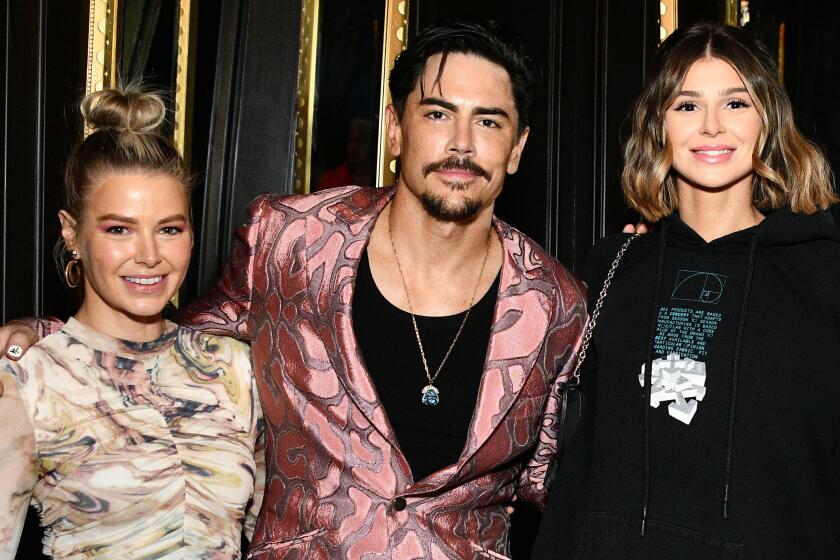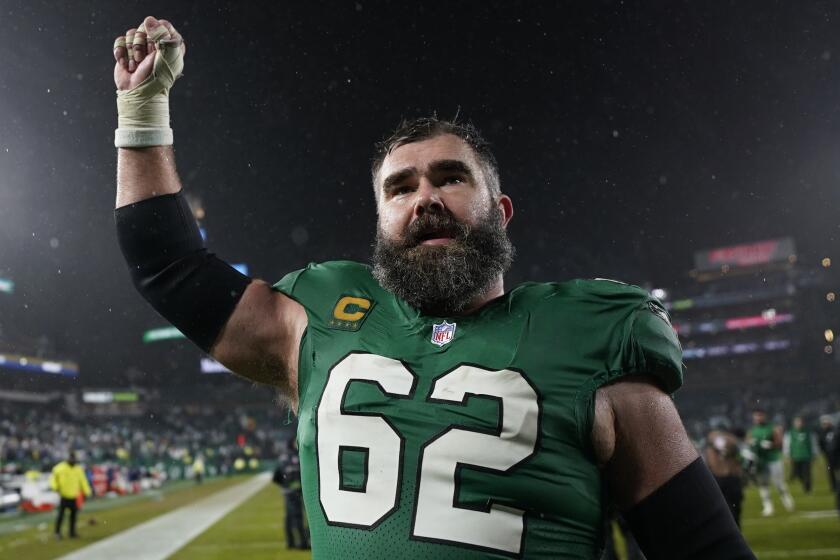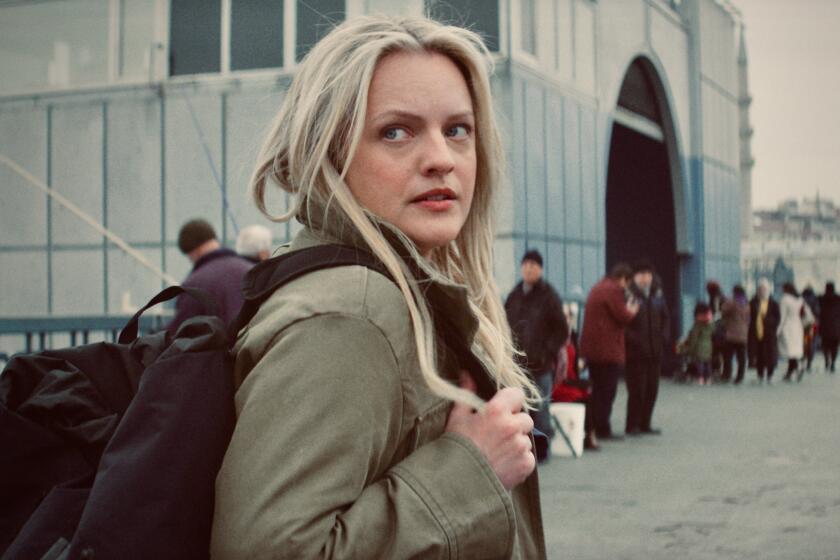Mariette Hartley Breaks the Silence on Her Legacy
It has always been true that the real lives of some performers were more dramatic than any roles they played. Usually, too, there were fewer happy endings than the scriptwriters provided.
The gulf between the make-believing and the reality has seldom been been wider and darker than in the life of Mariette Hartley. Seemingly she has had it all: a precocious career that began when she was hardly into her teens (she is 50 now); great beauty, charm, intelligence and all the actor’s gifts for conveyance and communication.
The career has had its ups and downs--which career hasn’t? Her first film, “Ride the High Country,” is a classic Western. She has a long list of fine credits in films for television, and many viewers remember her most appreciatively for her snappy crosstalk with James Garner on a long series of Polaroid commercials.
The nine-month hitch on CBS’ disastrously miscalculated “Morning Program” was a downer, but her new series, “WIOU,” seems to be off to a good start. Her fantasies about not being Meryl Streep make a very funny frontpiece to an autobiography Hartley has just published called “Breaking the Silence,” which she wrote with a longtime friend, playwright Anne Commire (G.P. Putnam’s Sons).
What her silence had concealed for so long is astonishing. Hartley’s father was an artist, a successful ad agency executive finally defeated by alcoholism, compounded by the vagaries of the ad business. He committed suicide in the family’s Brentwood apartment while Hartley and her mother were in the next room.
Hartley’s maternal grandfather was the behavioral psychologist John B. Watson, who preached that children should be strictly raised, almost like strangers, and neither be held nor coddled. The doctrine’s dire consequences left their marks on his daughter, who then stayed a cool emotional distance from her own daughter and who made several suicide attempts. She also had problems with alcohol when Mariette was a child.
Hartley’s first husband was pathologically jealous of her and beat her up frequently. Despite restraining orders, he followed and haunted her after they separated and until their divorce was at last final.
Not so surprisingly, Hartley herself fell into drink and was at one point selling inexpensive dresses in a department store to pay the rent. But it all began to change nearly 20 years ago. A 12-step recovery program, therapy and in particular an organization called Adult Children of Alcoholics helped. Her mother, freed of her own demons, found the will to live and died only two months ago, she and her daughter long since at peace with each other.
A strong second marriage, to Patrick Boyriven, and two supportive children have also helped. Finally, roles she played in two docudramas convinced Hartley that it was time to break the silence.
She played Candy Lightner, the founder of Mothers Against Drunk Drivers, and was deeply impressed what one woman, never previously an activist, could achieve. She also played the mother of a teen-age suicide in “Silence of the Heart” and, talking with the actual parents, realized that discussing the positive changes that had taken place in her life could help other parents, and suicidally-inclined young people.
“My household, as I was growing up, was a house of hidden shame,” Hartley said the other afternoon at her home in Encino. It may have begun with her grandfather’s shame at having been a farm boy of very modest means who happened to make good. Her mother’s shame was of own perceived inadequacies and her impotence.
Hartley, as a child and after, was stricken by feelings of her own powerlessness, her inability to stop either of her parents from drinking, or later to lift the terrible depressions from them.
“The book,” Hartley says, “is about joyous survival. I hope a lot of it’s funny. I put myself down. I didn’t want it to be exploitive, just a horror story. Putnam’s wanted more details about my father’s suicide. I didn’t want to. I wanted to put my present joy in the context of all the past pain, to show that there really is light at the end of the tunnel. The book ends with my mother wanting to live.”
The working title for two years was “Breaking the Legacy,” because part of the emotional turmoil for Hartley in her earlier days was the terrible suspicion that suicide was a kind of toxin that she had inherited like the color of her hair. She doesn’t feel that at all, but it is part of the message she carries to the audiences she addresses. (She and Peter Fonda, whose mother was a suicide, shared a platform over the weekend.)
“I give as much detail as I do about the bad times,” Hartley says, “because people out there don’t know that others have been through hell but then through the process of amazing grace. You hope that someone out there will hear what you have to say, and that it may matter. I always tell teen-agers who are thinking about suicide, don’t stop at one phone call. Keep calling until you reach someone who will listen and talk to you.”
The complete guide to home viewing
Get Screen Gab for everything about the TV shows and streaming movies everyone’s talking about.
You may occasionally receive promotional content from the Los Angeles Times.



